- Home
- Diana Palmer
A Love Like This Page 3
A Love Like This Read online
Page 3
“I live in Chicago. But I visit a lot of places.” He drew up one powerful leg to rest his arm across. “What part of Georgia?”
“Ashton. In Creek County,” she replied. “It’s way south of Atlanta, kind of in the middle of the southern part of the state.”
“I’m glad you don’t write tourist guide maps,” he said dryly. “What do you do for a living?”
“Oh, I’m a reporter for—” she began.
“A reporter?” He stood up in one smooth motion, his body taut with rage, his eyes frightening. “My God, I should have known. I thought I was getting the come-on, but I didn’t realize I was being had, as well. How did you find me?”
She couldn’t begin to follow him. “I...uh, that is...” she stammered, surprised to find herself trembling under the cold, quick lash of his voice.
“Can’t you damned vultures find someone else to feed on, without tracking me around the world?” he ground out in a tone that lacerated as surely as yelling would have. “Get off my back, honey, or so help me God, I’ll stick you and your damned paper with an invasion-of-privacy suit you won’t forget!”
She found her voice and stood up, too, flaring like a torch. “And who are you, anyway, that I’d want to follow you around?” she managed, finding her voice at last.
“You don’t know?” He laughed sarcastically. “Who put you onto the deal—Ramond? My God, there’s nothing earthshaking about the project, nothing faintly newsworthy to the States. So what do you want, honey? More about Penny? That’s a closed chapter in my life, and I’m sick of being questioned about her. Is that clear enough, or would you like it in words of one syllable?”
“I don’t have the faintest idea what you’re talking about,” she said tightly. “You may be some kind of super big fish where you come from, but you’re just an oversize tadpole to me, Mr. Big Shot Executive!”
“Sure,” he said with cutting contempt. His eyes gave her his opinion of her total worth, and she thought she’d never seen such distaste in a face before. “I don’t like parasites. From now on keep out of my way. I don’t want to have to breathe the same air with you.”
He turned around and walked away, his back as stiff as a starched shirt, and Nikki just stood there, shaking. She sat back down on the ledge until her legs felt more stable, feeling sick and hurt and confused. What did he mean about reporters following him all over the world? Why hadn’t he let her finish telling him that she worked for a small weekly paper, not some sensational tabloid? And who was he? Who was Penny? Why did he hate reporters?
For the first time she felt small and vulnerable. More fool me, she told herself with a bitter smile. I should have known better. But what hurt the most was his opinion of her, that he thought she’d picked him up to worm information about some project out of him. She grimaced. How could she have been trying to pick him up when she’d done everything but hire a taxi to keep out of his way? And he’d invited her to dinner; she hadn’t picked him up.
Tears welled in her eyes. He’d prejudged her and hated her on the basis of her profession, without taking time to get to know her, or to give her the benefit of the doubt. And that was what hurt the most. She’d liked the glimpse she’d had of the man inside that hard shell. She had a peculiar thirst to get to know him better. But that wasn’t going to be possible now, she knew.
She stood up, wiped away the tears and started down the sidewalk toward the patio bar. She’d like to have sampled one of those island drinks, like a Bahama Mama or a piña colada. But not at a time like this, when she felt like the end of the world. Drinking was only a crutch for pain, and Nikki didn’t like crutches. She swept through the sparsely populated bar on her way upstairs. She wasn’t even surprised to find that her dinner companion wasn’t among its patrons.
CHAPTER THREE
NIKKI WENT BACK UP to her room overlooking the front of the hotel and stood quietly by the window, looking out over the struggling air conditioner to the streets below, to the horizon. Instead of magnolia trees there were towering palm trees, making a landscape that seemed alien. It wasn’t particularly dark on the horizon, as if the island were perpetually lit up by something other than streetlights or the moon. It wasn’t anywhere near the pitch darkness of a Georgia moonless night.
She studied the international grouping of flags over the front of the hotel, recognizing one as British, one as American. All around there were people. Hotel employees called greetings to each other as they passed. Tourists got into and out of cabs at a fantastic rate. And there Nikki stood, all alone, her heart down around her ankles, with that arrogant man’s words ringing like chapel bells in her ears. Vulture. Parasite. She was an idealist, believing that what she did with a typewriter might make some small difference in the world. A story about a child with a disability being honored might inspire another child to try when he or she had given up. A story on an elderly person getting involved in politics might encourage another, more depressed senior citizen to look at life in a brighter way. A story on drugs might keep someone from trying them, might save a life. That was why Nikki wanted to write. Not to get rich. Not to get famous. Only to help.
But how could she expect Mr. Big Shot to understand ideals? She doubted if he even had any, past getting richer. The flags misted and blurred. Who cared, anyway? She didn’t.
* * *
AFTER A RESTLESSLY hot night, during which the valiant air conditioner didn’t seem to make even a small difference, she rolled over and turned on Radio Bahamas. She listened to a news broadcast followed by a sermon in a delightful British accent, followed by a series of current American top pops and a few golden oldies mingled with the happy calypso beat, the goombay beat, which the Bahamas was famous for. The music made her feel better as it teased her lips into a smile, got into her bloodstream and bubbled. She threw her feet over the side of the bed and got up to dress.
The coffee shop opened at seven each morning, so she hurried down for her egg on a muffin and coffee, and to get ready for another day of sightseeing. Today she was going on a seashell hunt, on one of those tours she’d learned about at the desk. But first she was going to have breakfast and lie in the sun for a while.
The little coffee shop’s trade was brisk. She stood in line for ten minutes, and in exchange for her American currency she got a number of beautiful Bahamian coins and a dollar bill with colorful fish and a photograph of Queen Elizabeth. The money here was as colorful as the scenery, as bright and gay and sophisticated as the people themselves. She was beginning to learn the softly accented English the Bahamian people spoke, to understand their fascinating culture. Each morning now, it had become a habit to go down Bay Street and buy the morning newspaper from the blind vendor near the clothing shop. The elderly gentleman had relatives in the States, he’d told her, although he’d never been there himself. She would press the right amount of change into his hand, and he would reply in the West Indian manner, “Thank you, m’dear.” Everyone seemed to buy the paper. It was as much a part of the routine as the speedy breakneck traffic of the early morning as workers rushed to their offices and neatly uniformed policemen worked to prevent pileups. The docks were busy, too, as fishermen moved their boats out into the crystal clear water and the straw market began forming with vendors setting up their stalls with bright native handwork, woven purses and hats and other treasures that were gobbled up by tourists.
“Having a good time?” the girl behind the counter asked her with a grin as she handed her the change.
“I love it!” She laughed back, and the joy of the new experiences was in her eyes, her face, her posture as she danced away toward the tables and came face-to-face with the man from Chicago.
Her smile crumbled as she met his cold, contemptuous stare from the table where he was sitting with no breakfast, only a cup of black coffee cupped in his two big hands.
Old habits die hard, and Nikki had been taught manners with her first steps. She
gave him a polite, if curt, jerk of her head and made her way to the very back booth, by the door that opened into the back street. She sat down with her muffin and coffee, with her back to the stranger.
It was all she could do to concentrate on her breakfast, which he’d managed to spoil with that steely glare. She was all but shaking with mingled rage and outrage. He knew nothing about her, nothing at all—not that she was conscientious, not that she’d never think of doing anything underhanded to get a story. How dare he judge her! As if she’d write about a horrible man like him, anyway, whoever he was!
“You’ll strain your spine if you don’t relax,” he said from just behind her, causing her to stiffen even more with surprise.
She didn’t answer him. She wasn’t going to give him the satisfaction of actually replying. She bit into her egg and muffin, which tasted like powdered concrete, thanks to him, and chewed it thirty times before she swallowed. When she took a sip of her coffee, there was no sound to indicate that he’d moved an inch.
Curious, she turned her head and jerked to find him only inches away. He was sitting at the booth behind her, facing the aisle and watching her with eyes she couldn’t understand.
“If you don’t mind,” she said quietly, “I’d like to enjoy what’s left of my breakfast.”
“There wasn’t much of it to begin with,” he replied.
“Why don’t you go out and take care of your own business?” she asked him coldly. “I came over here for a vacation, not to fight the Civil War after every meal.”
She started to get up, unfinished breakfast and all, but he blocked her by stretching a powerfully muscled arm across the booth. She collided with it and felt an electric shock run through her slender body before she jerked back with a muffled gasp.
He didn’t like that betraying little movement; his face tautened at it. He laughed shortly, “I’m not used to women running from me,” he said. “Especially not women reporters.”
“I work for a weekly paper, not a scandal sheet,” she said bitingly. “We have a paid circulation of six thousand, and we are hardly likely to set the world ablaze with stories on Jim Blalock’s fifty-pound cabbage or our new flood control ordinance.”
He studied her face quietly. “A weekly, huh?”
“While we’re about it, allow me to blow another hole in your theories,” she added angrily. “I don’t know who you are. And frankly I couldn’t care less. My first impression of you was right on the money. I should have turned around the minute I saw you coming toward the elevator. Next time I will.”
She ducked under his arm, tray and all, and stood up.
“All right, I’m convinced,” he said, moving in front of her.
“I’m thrilled. Will you get out of my way, please?” she added.
He sighed deeply, taking the tray from her. “We’re going to have a rocky relationship if you keep this up.”
“You’d be lucky,” she returned, but after a minute she sat back down at the table opposite him.
“Not that kind of relationship,” he told her. His quiet eyes searched hers. “You aren’t hard enough for holiday affairs.”
“And you’ve got all the women you need,” she replied with a faint twinkle in her eyes.
“Something like that.” He leaned back to light a cigarette while he watched her nibble half-heartedly at her egg and muffin. “Twenty-five is a bit young for me, anyway, Georgia.”
“Twenty-six in two weeks,” she replied.
There was a long, potent silence between them while murmuring voices from other tables drifted by.
She looked up into dark, searching eyes and felt the breath chased out of her lungs by the intensity of that unblinking stare.
“How long are you going to be here?” he asked gently.
“About ten more days,” she managed in a strange little voice. Her heart began to do the calypso in her chest as she returned that long, searching gaze. How odd, it seemed as if she’d known him forever...
Strange sensations wandered through her at the piercing quality of his eyes. He was such an uncommon quantity to her. She felt safe and threatened, all at once, and something in that utterly adult look of his made her feel strangely vulnerable. If I had good sense, she thought wildly, I’d break and run and never go near him again until I was safely on the plane home. But she was frozen in place. She couldn’t force herself to get up and leave him there.
“Don’t start looking for cover,” he said, reading the apprehension in her taut features. “You don’t need to feel threatened with me, little one.”
“I’m not little,” she said breathlessly.
“Honey,” he said, standing even as he crushed out his cigarette, “compared to me, you’re tiny.”
She stood up beside him, forced to admit the truth in that bland statement. He loomed over her like some dark giant, as solid as concrete, as powerful as a professional athlete. There wasn’t an ounce of flesh on him that wasn’t firm, no sign of a beer belly or its upper-crust equivalent. His stomach was as flat as her own, his posture not only proud and arrogant, but full of barely concealed vitality. He’d said he’d been married, and she wondered if there were children. But before she could get her muddled thoughts together, she found herself being shuttled out onto the sidewalk.
“But I was going back to my room,” she protested, feeling that warm, strong grip on her elbow as he hurried her across the street.
“What for?” he asked without breaking stride.
“To get my swimsuit on.”
“You can’t swim on a full stomach.”
“But I can sunbathe...”
“You’ll blister,” he remarked, glancing sideways at her creamy complexion against the pale green blouse and white slacks she was wearing. “Or worse, wind up like old leather. Don’t fry that perfect skin. It’s one of your better features.”
“So complimentary,” she mumbled. “What do you think you’re doing, dragging me along like this?” she added as they dodged other tourists. It appeared that not only did the local people drive on the left-hand side of the road, they walked on the left-hand side of the sidewalk, as well. That had caused Nikki quite a few collisions until she got the hang of walking in crowds.
“I’m taking you under my wing,” he replied.
“If you did, you’d crush me,” she told him. “And besides, it’s too early. None of the shops will be open.”
“Which makes this the best time of day to explore,” he replied, strolling along beside her like a man without a care in the world. The brown open-necked shirt he was wearing was almost exactly the shade of his eyes, dark against the white slacks on his powerful legs. He was a striking man.
“The beach...” she began weakly.
“Will still be there when you get back,” he promised. “Now shut up. I’m rescuing you from certain boredom.”
She gave up, falling into step beside him when he released her arm long enough to light a cigarette and send out a great cloud of smoke.
“Do you always capture people this way?” she asked politely.
“Only when it’s necessary.” He threw her a mocking look. “It never has been before. It’s usually the other way around.”
“I don’t chase men,” she informed him. “I’m only a libber where salaries, working conditions and rights are involved. I don’t want to brawl or press two-hundred-pound weights, thank you.” She gave him a brief scrutiny. “I’ll bet you think women should be kept in harems.”
“On the contrary,” he replied. He took another drag from the cigarette and paused to watch a straw vendor setting up shop on a wide corner as they passed it. “I’m not a chauvinist. The world is changing, and I’m doing my best to change with it.” His eyebrow cocked at her. “Although I will admit that harems have their place. God knows what I’d do without mine on cold nights.”
“Oink,
oink,” she murmured.
“Cats, honey, cats. All female, all Siamese. Four of them.” He shrugged. “Dogs are all right. I keep one around the grounds for intruders. But it’s damned hard to pet a two-hundred-pound Doberman with killer instincts. The cats are friendlier.”
“I thought Siamese were vicious,” she remarked.
“They fight back,” he replied. “But they’re loving animals, too. I don’t know about you, Georgia, but I can’t tolerate people or animals without a little spirit. I hate patronage.” His eyes darkened. “God, I hate it!”
She studied his hard face. His gaze was averted, and he seemed to be carved from the same stone the old fort had been. He must be an important man, she decided. He had a quality she’d never seen in any of her contemporaries. Something extra. Magic.
“Is that why you travel alone?” she asked, the words slipping out before she could stop them.
He glanced down at her. “It’s one reason. But I don’t always travel alone.”
A woman. The words flashed into her mind and he read them in her eyes and smiled faintly.
“No, honey, not on a business trip,” he murmured dryly, “I’d never be able to think straight with that kind of distraction. I meant, I take Lucifer with me occasionally.”
She stopped in the middle of the sidewalk with her mind swimming. “Lucifer?”
“The two-hundred-pound Doberman,” he said.
Her eyes searched his. “You said he was a guard dog. Do you need guarding?” she asked, measuring him.
“I can handle myself. But Lucifer is a powerful deterrent, and I have enemies.”
“You mean, enemies who might try to kidnap you for ransom?” she asked, all emerald eyes and arched brows.
“Or worse,” he agreed. “My, my, what an expression! You are a babe in the woods, aren’t you?”
“Cal, what do you do?” she asked bluntly, calling him by name for the first time.

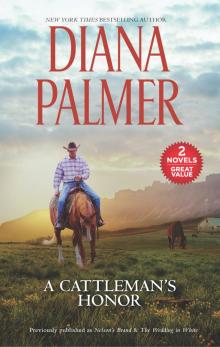 A Cattleman's Honor
A Cattleman's Honor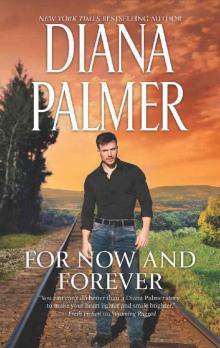 For Now and Forever
For Now and Forever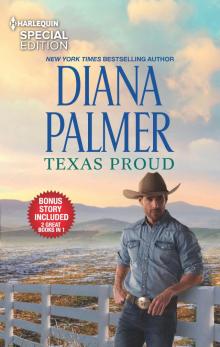 Texas Proud and Circle of Gold
Texas Proud and Circle of Gold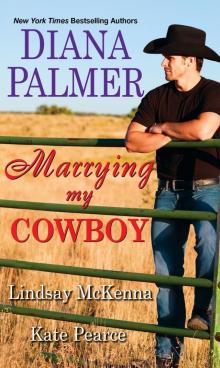 Marrying My Cowboy
Marrying My Cowboy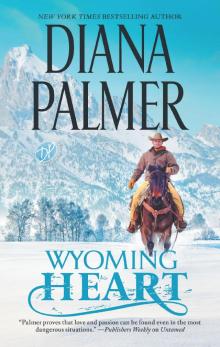 Wyoming Heart
Wyoming Heart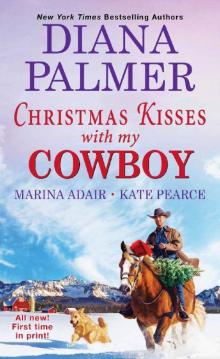 Christmas Kisses with My Cowboy
Christmas Kisses with My Cowboy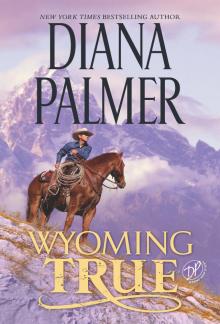 Wyoming True
Wyoming True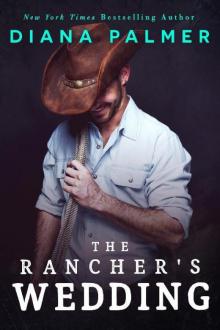 The Rancher's Wedding
The Rancher's Wedding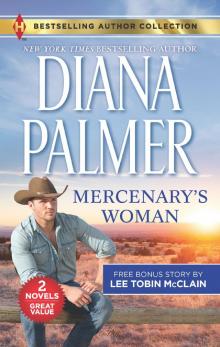 Mercenary's Woman ; Outlawed!
Mercenary's Woman ; Outlawed! Long, Tall Texans: Stanton ; Long, Tall Texans: Garon
Long, Tall Texans: Stanton ; Long, Tall Texans: Garon Lawless
Lawless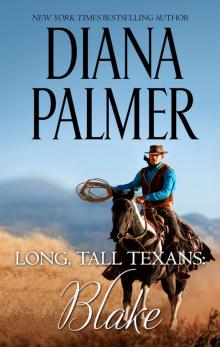 Blake
Blake Escapade
Escapade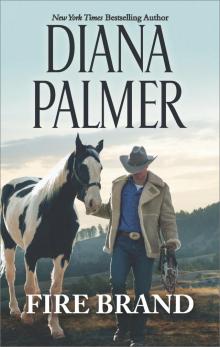 Fire Brand
Fire Brand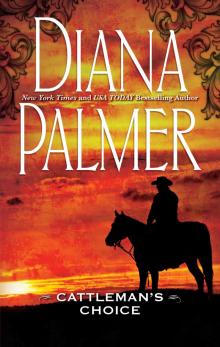 Cattleman's Choice
Cattleman's Choice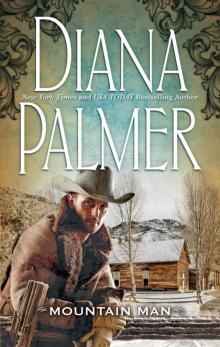 Mountain Man
Mountain Man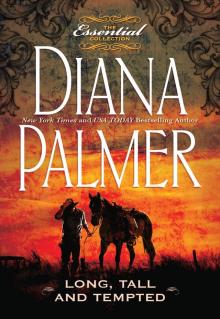 Long, Tall and Tempted
Long, Tall and Tempted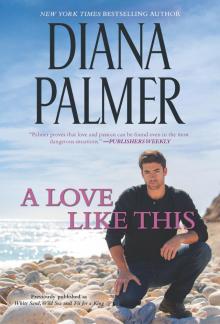 A Love Like This
A Love Like This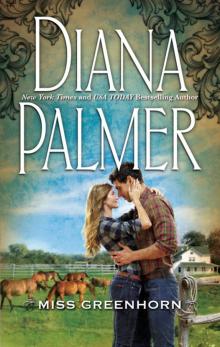 Miss Greenhorn
Miss Greenhorn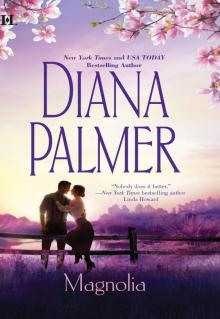 Magnolia
Magnolia Lord of the Desert
Lord of the Desert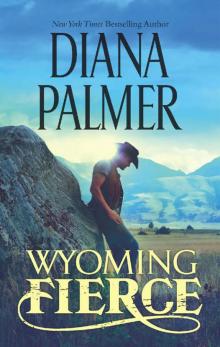 Wyoming Fierce
Wyoming Fierce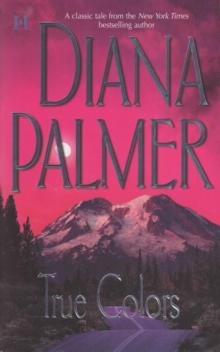 True Colors
True Colors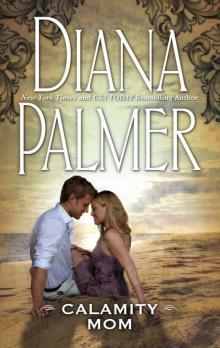 Calamity Mom
Calamity Mom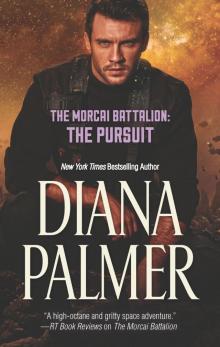 The Pursuit
The Pursuit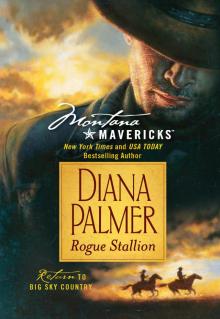 Rogue Stallion
Rogue Stallion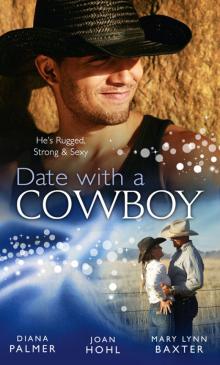 Date with a Cowboy
Date with a Cowboy Heart of Winter
Heart of Winter Friends and Lovers
Friends and Lovers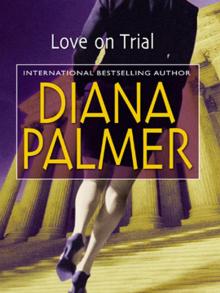 Love on Trial
Love on Trial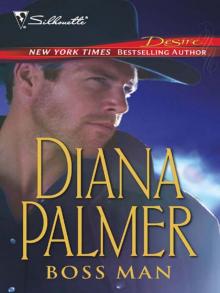 Boss Man
Boss Man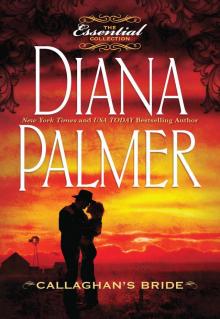 Callaghan's Bride
Callaghan's Bride Before Sunrise
Before Sunrise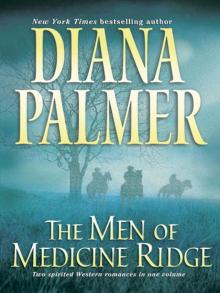 The Men of Medicine Ridge
The Men of Medicine Ridge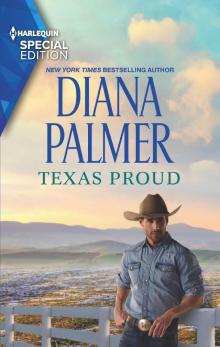 Texas Proud
Texas Proud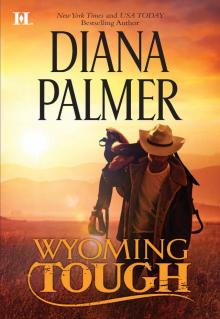 Wyoming Tough
Wyoming Tough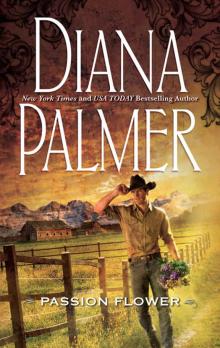 Passion Flower
Passion Flower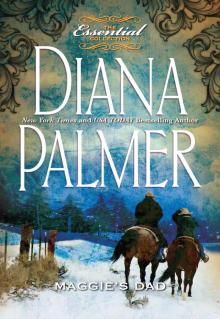 Maggie's Dad
Maggie's Dad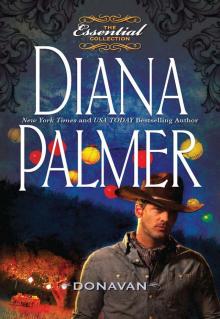 Donavan
Donavan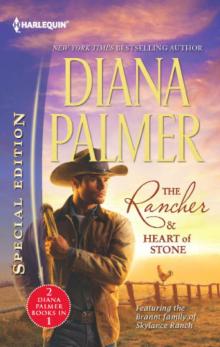 The Rancher & Heart of Stone
The Rancher & Heart of Stone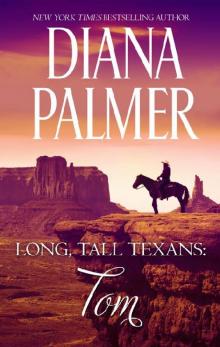 Long, Tall Texans: Tom
Long, Tall Texans: Tom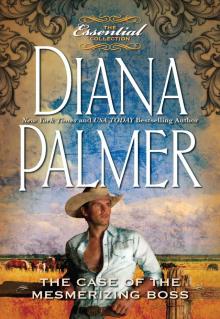 The Case of the Mesmerizing Boss
The Case of the Mesmerizing Boss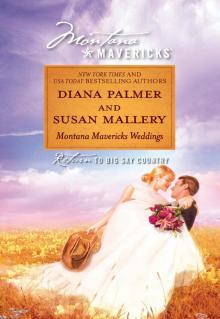 Montana Mavericks Weddings
Montana Mavericks Weddings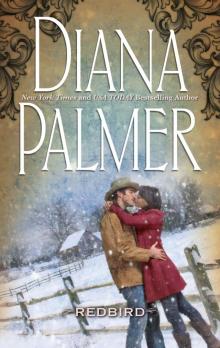 Redbird
Redbird Wyoming Strong
Wyoming Strong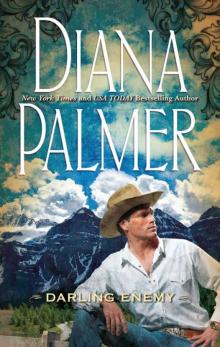 Darling Enemy
Darling Enemy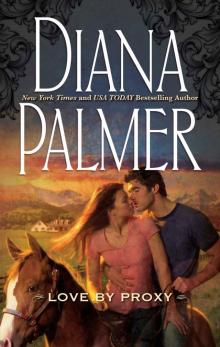 Love by Proxy
Love by Proxy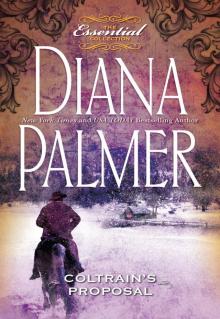 Coltrain's Proposal
Coltrain's Proposal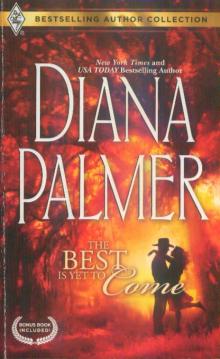 The Best Is Yet to Come & Maternity Bride
The Best Is Yet to Come & Maternity Bride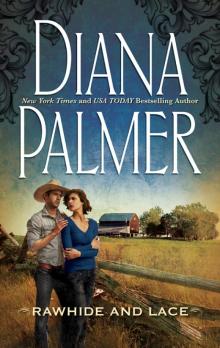 Rawhide and Lace
Rawhide and Lace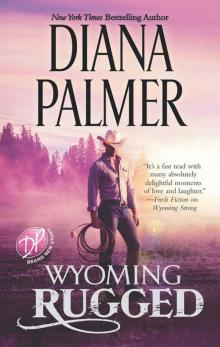 Wyoming Rugged
Wyoming Rugged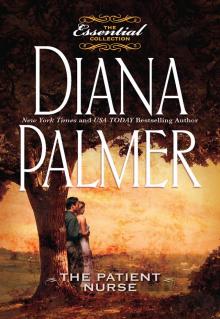 Patient Nurse
Patient Nurse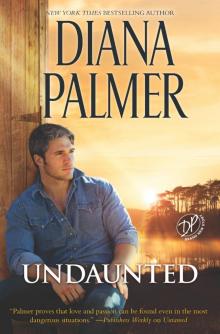 Undaunted
Undaunted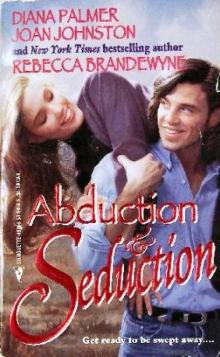 Long Tall Texans Series Book 13 - Redbird
Long Tall Texans Series Book 13 - Redbird Outsider
Outsider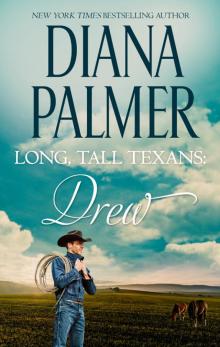 Long, Tall Texans: Drew
Long, Tall Texans: Drew Long, Tall Texans--Christopher
Long, Tall Texans--Christopher Merciless
Merciless A Match Made Under the Mistletoe
A Match Made Under the Mistletoe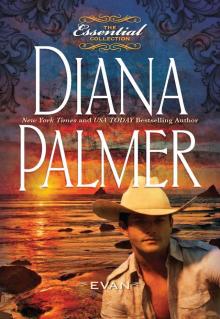 Evan
Evan Hunter
Hunter Now and Forever
Now and Forever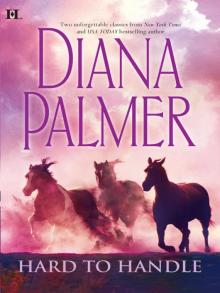 Hard to Handle
Hard to Handle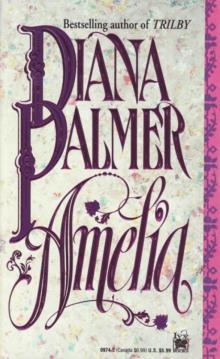 Amelia
Amelia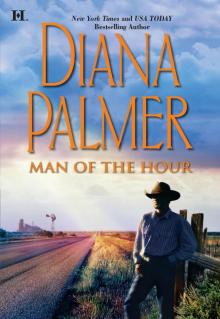 Man of the Hour
Man of the Hour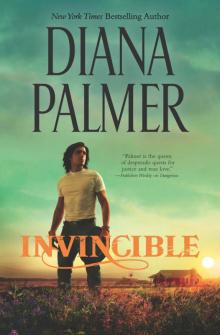 Invincible
Invincible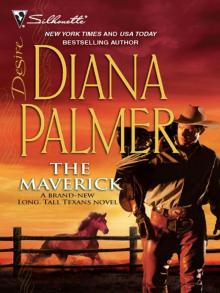 The Maverick
The Maverick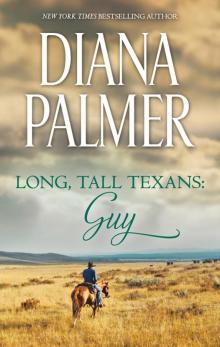 Long, Tall Texans--Guy
Long, Tall Texans--Guy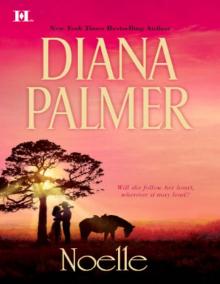 Noelle
Noelle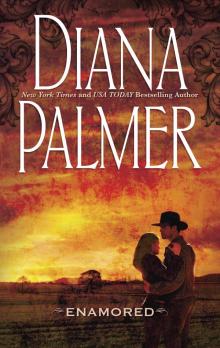 Enamored
Enamored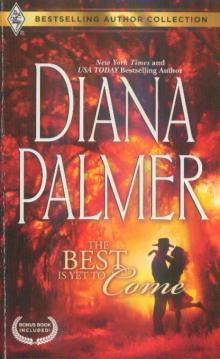 The Best Is Yet to Come
The Best Is Yet to Come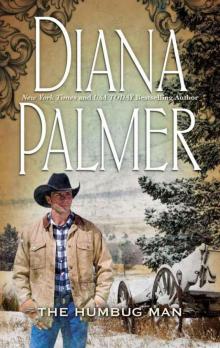 The Humbug Man
The Humbug Man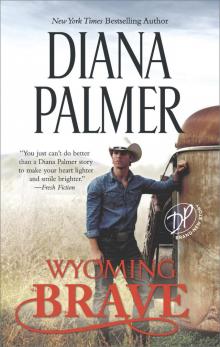 Wyoming Brave
Wyoming Brave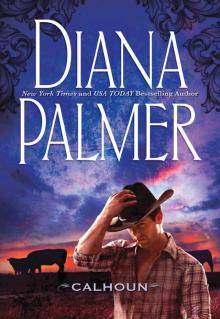 Calhoun
Calhoun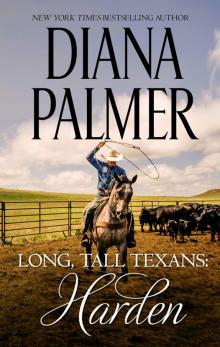 Long, Tall Texans--Harden
Long, Tall Texans--Harden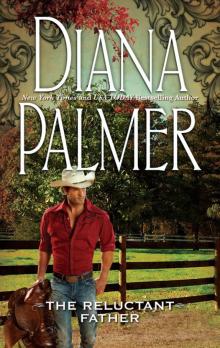 The Reluctant Father
The Reluctant Father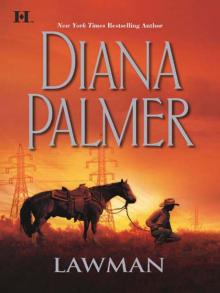 Lawman
Lawman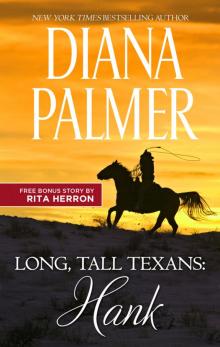 Long, Tall Texans: Hank & Ultimate Cowboy ; Long, Tall Texans: Hank
Long, Tall Texans: Hank & Ultimate Cowboy ; Long, Tall Texans: Hank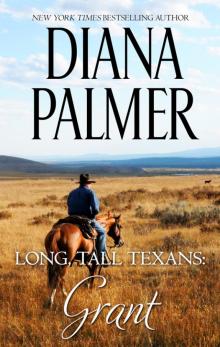 Grant
Grant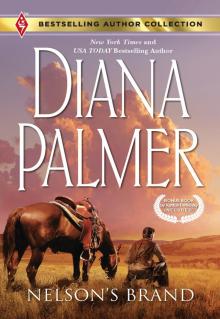 Nelson's Brand
Nelson's Brand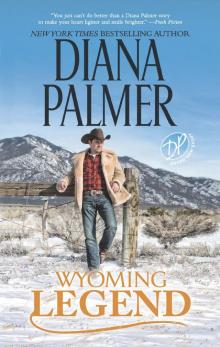 Wyoming Legend
Wyoming Legend Diamond Spur
Diamond Spur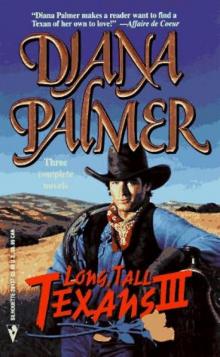 That Burke Man
That Burke Man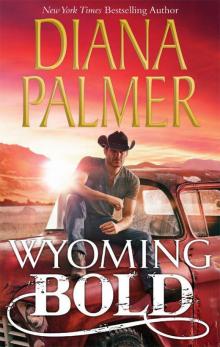 Wyoming Bold (Mills & Boon M&B)
Wyoming Bold (Mills & Boon M&B) Heartless
Heartless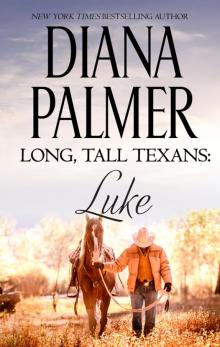 Long, Tall Texans--Luke
Long, Tall Texans--Luke To Have and to Hold
To Have and to Hold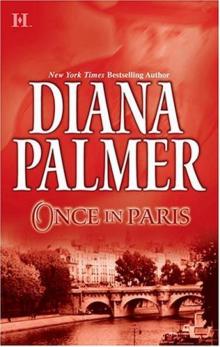 Once in Paris
Once in Paris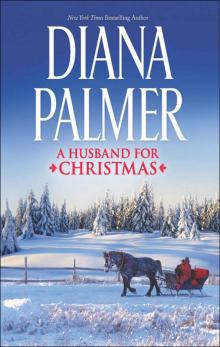 A Husband for Christmas: Snow KissesLionhearted
A Husband for Christmas: Snow KissesLionhearted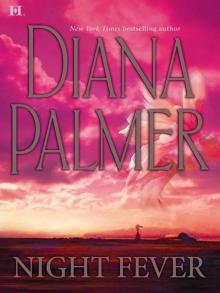 Night Fever
Night Fever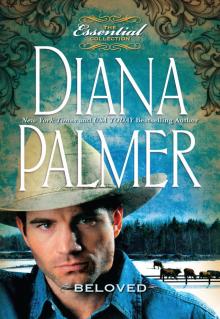 Beloved
Beloved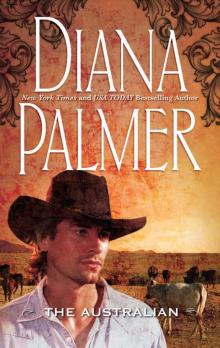 The Australian
The Australian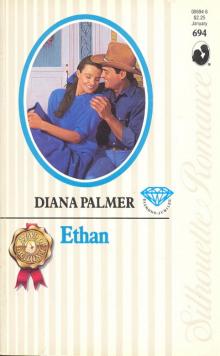 Ethan
Ethan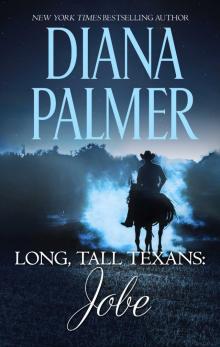 Long, Tall Texans: Jobe
Long, Tall Texans: Jobe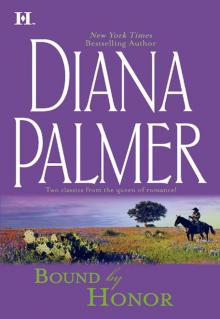 Bound by Honor: Mercenary's WomanThe Winter Soldier
Bound by Honor: Mercenary's WomanThe Winter Soldier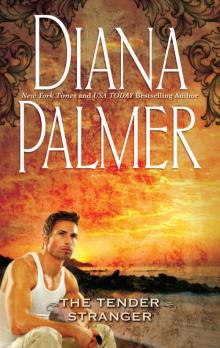 Tender Stranger
Tender Stranger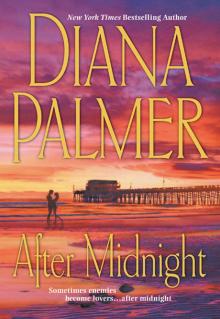 After Midnight
After Midnight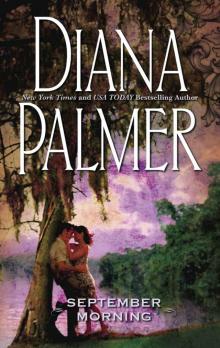 September Morning
September Morning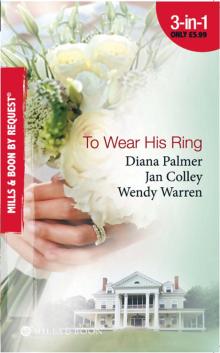 To Wear His Ring
To Wear His Ring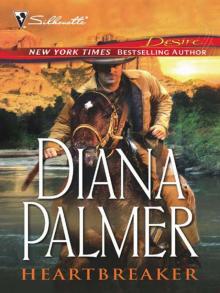 Heartbreaker
Heartbreaker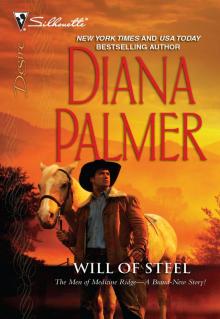 Will of Steel
Will of Steel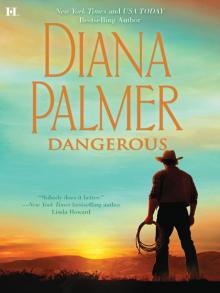 Dangerous
Dangerous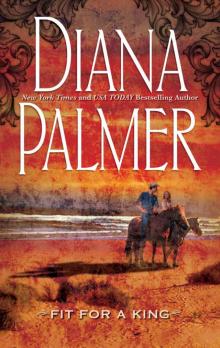 Fit for a King
Fit for a King Diamond in the Rough
Diamond in the Rough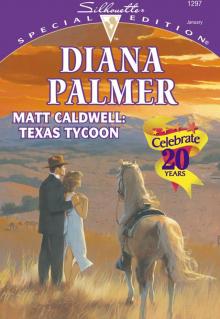 Matt Caldwell: Texas Tycoon
Matt Caldwell: Texas Tycoon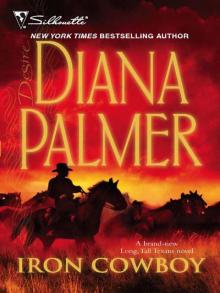 Iron Cowboy
Iron Cowboy Fire And Ice
Fire And Ice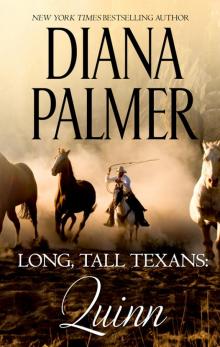 Long, Tall Texans--Quinn--A Single Dad Western Romance
Long, Tall Texans--Quinn--A Single Dad Western Romance Montana Mavericks, Books 1-4
Montana Mavericks, Books 1-4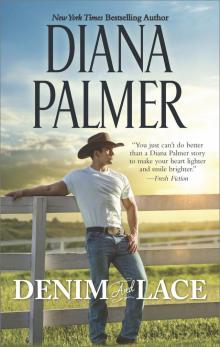 Denim and Lace
Denim and Lace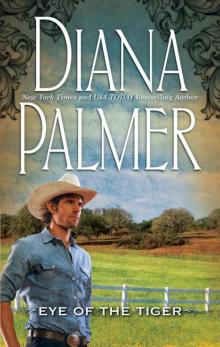 Eye of the Tiger
Eye of the Tiger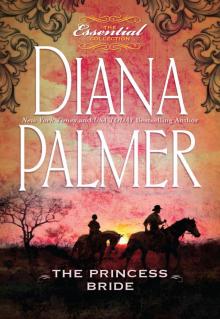 The Princess Bride
The Princess Bride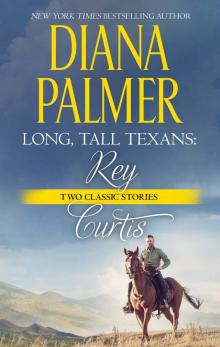 Long, Tall Texans: Rey ; Long, Tall Texans: Curtis ; A Man of Means ; Garden Cop
Long, Tall Texans: Rey ; Long, Tall Texans: Curtis ; A Man of Means ; Garden Cop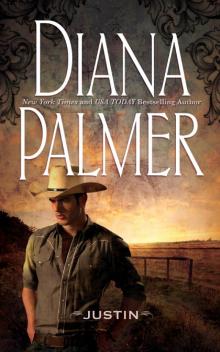 Justin
Justin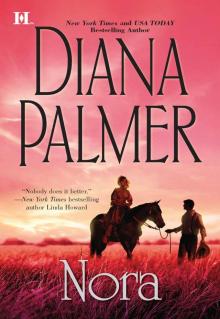 Nora
Nora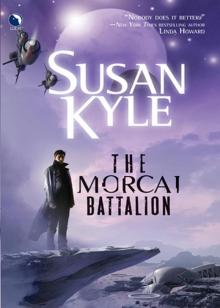 The Morcai Battalion
The Morcai Battalion Heart of Stone
Heart of Stone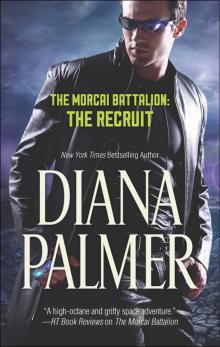 The Morcai Battalion: The Recruit
The Morcai Battalion: The Recruit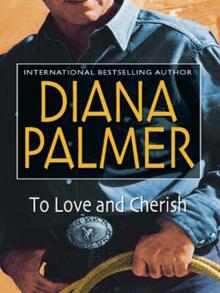 To Love and Cherish
To Love and Cherish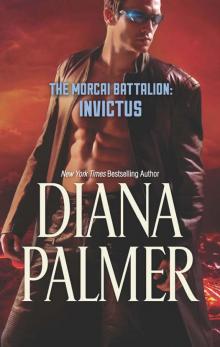 Invictus
Invictus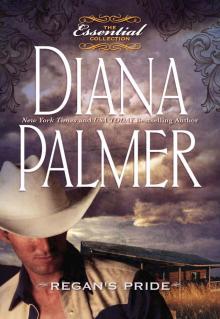 Regan's Pride
Regan's Pride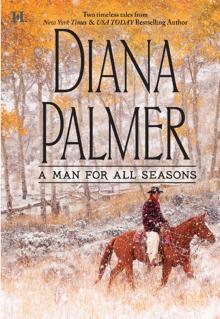 A Man for All Seasons
A Man for All Seasons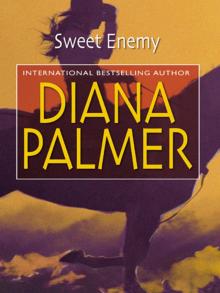 Sweet Enemy
Sweet Enemy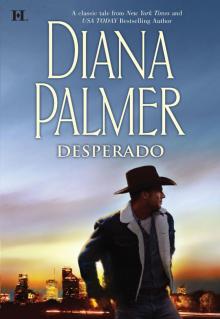 Desperado
Desperado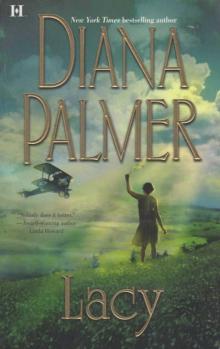 Lacy
Lacy The Winter Man
The Winter Man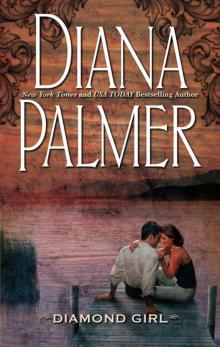 Diamond Girl
Diamond Girl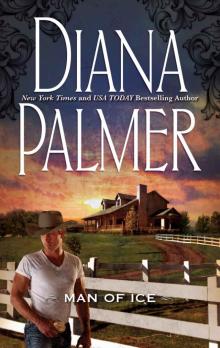 Man of Ice
Man of Ice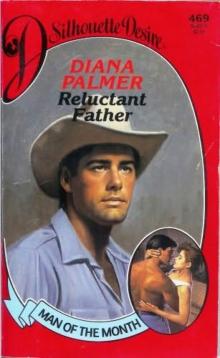 Reluctant Father
Reluctant Father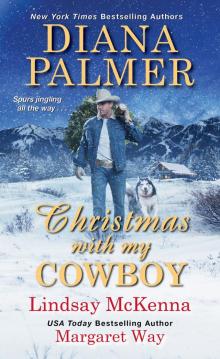 Christmas with My Cowboy
Christmas with My Cowboy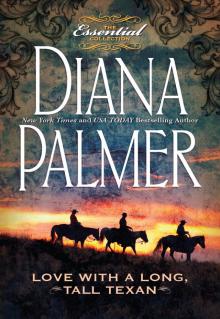 Love with a Long, Tall Texan
Love with a Long, Tall Texan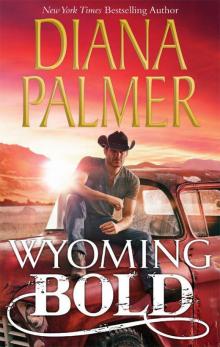 Wyoming Bold wm-3
Wyoming Bold wm-3 King's Ransom
King's Ransom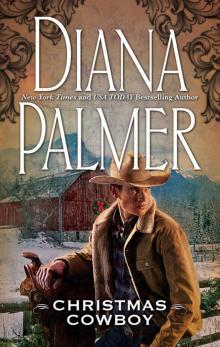 Christmas Cowboy
Christmas Cowboy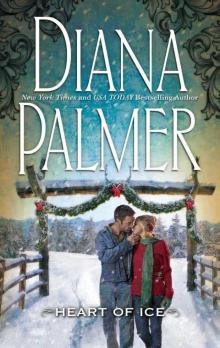 Heart of Ice
Heart of Ice Fearless
Fearless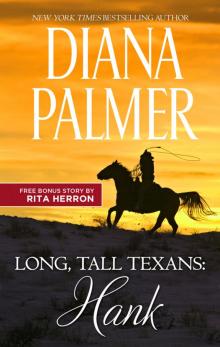 Long, Tall Texans_Hank
Long, Tall Texans_Hank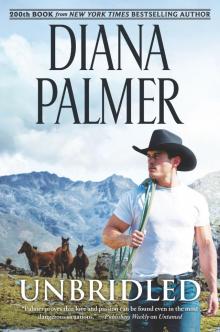 Unbridled
Unbridled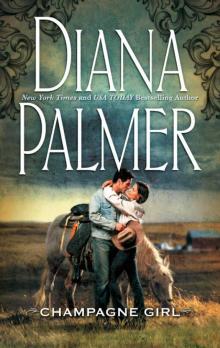 Champagne Girl
Champagne Girl The Greatest Gift
The Greatest Gift Storm Over the Lake
Storm Over the Lake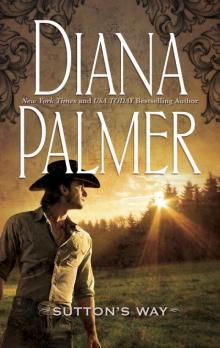 Sutton's Way
Sutton's Way Lionhearted
Lionhearted Renegade
Renegade Betrayed by Love
Betrayed by Love Dream's End
Dream's End All That Glitters
All That Glitters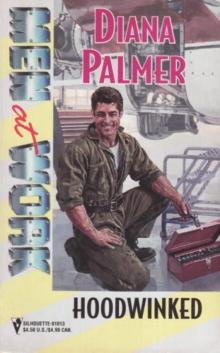 Hoodwinked
Hoodwinked Soldier of Fortune
Soldier of Fortune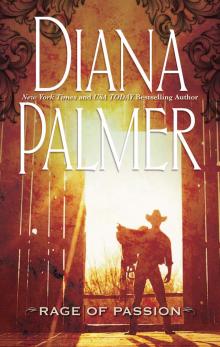 Rage of Passion
Rage of Passion Winter Roses
Winter Roses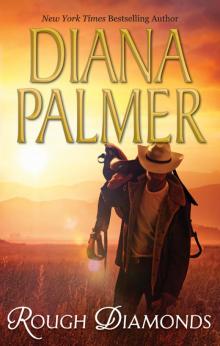 Rough Diamonds: Wyoming ToughDiamond in the Rough
Rough Diamonds: Wyoming ToughDiamond in the Rough Protector
Protector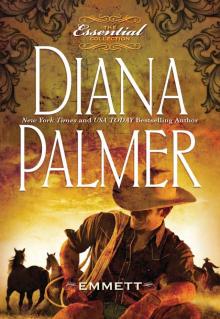 Emmett
Emmett True Blue
True Blue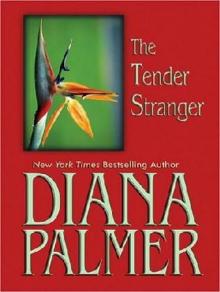 The Tender Stranger
The Tender Stranger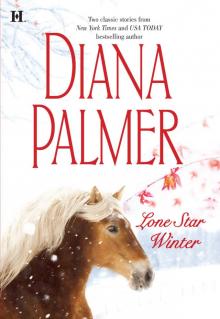 Lone Star Winter
Lone Star Winter Man in Control
Man in Control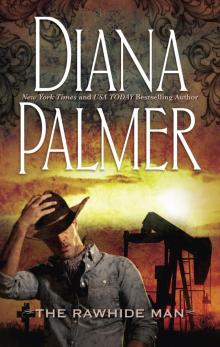 The Rawhide Man
The Rawhide Man Untamed
Untamed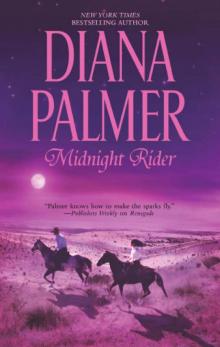 Midnight Rider
Midnight Rider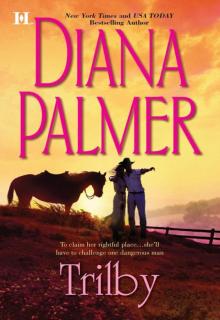 Trilby
Trilby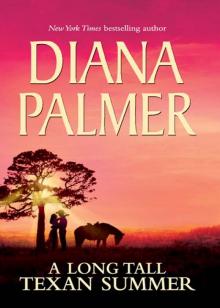 A Long Tall Texan Summer
A Long Tall Texan Summer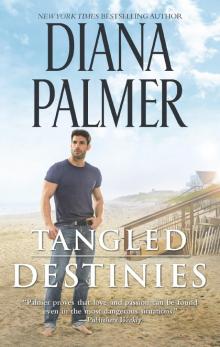 Tangled Destinies
Tangled Destinies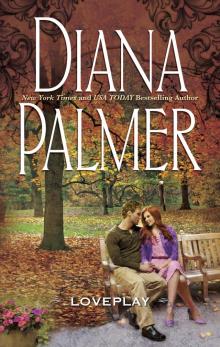 LovePlay
LovePlay Blind Promises
Blind Promises Carrera's Bride
Carrera's Bride Calamity Mum
Calamity Mum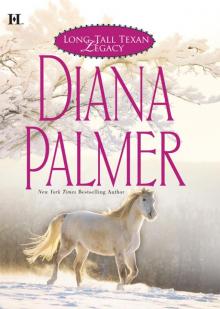 Long, Tall Texan Legacy
Long, Tall Texan Legacy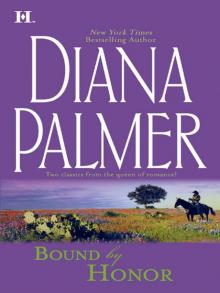 Bound by Honor
Bound by Honor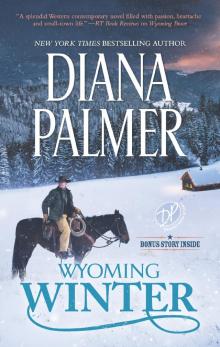 Wyoming Winter--A Small-Town Christmas Romance
Wyoming Winter--A Small-Town Christmas Romance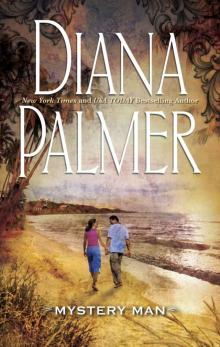 Mystery Man
Mystery Man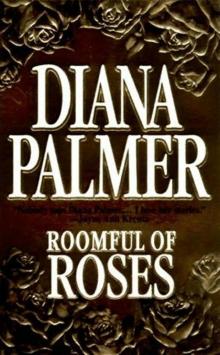 Roomful of Roses
Roomful of Roses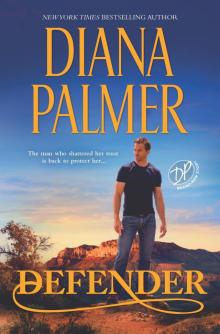 Defender
Defender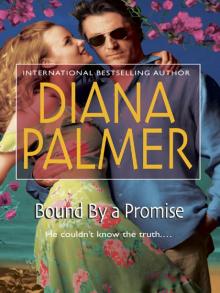 Bound by a Promise
Bound by a Promise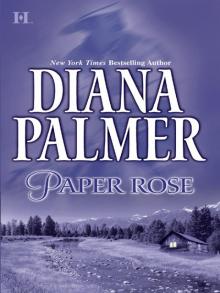 Paper Rose
Paper Rose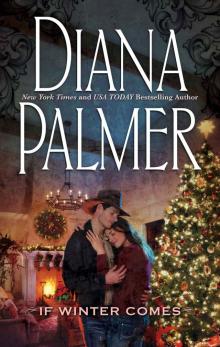 If Winter Comes
If Winter Comes Circle of Gold
Circle of Gold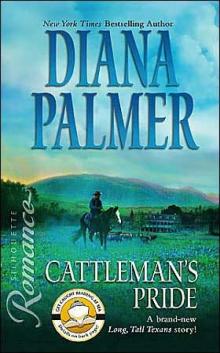 Cattleman's Pride
Cattleman's Pride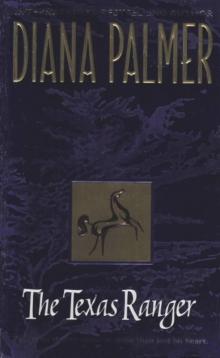 The Texas Ranger
The Texas Ranger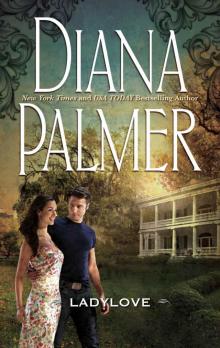 Lady Love
Lady Love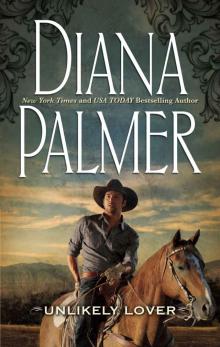 Unlikely Lover
Unlikely Lover A Man of Means
A Man of Means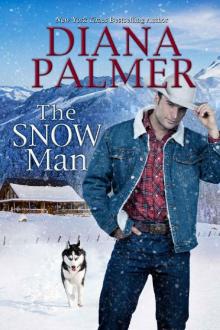 The Snow Man
The Snow Man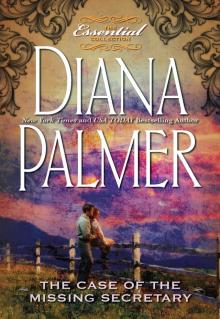 The Case of the Missing Secretary
The Case of the Missing Secretary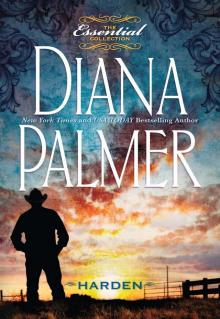 Harden
Harden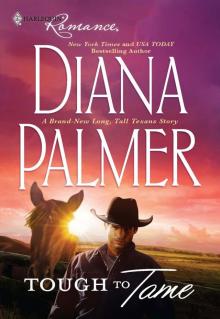 Tough to Tame
Tough to Tame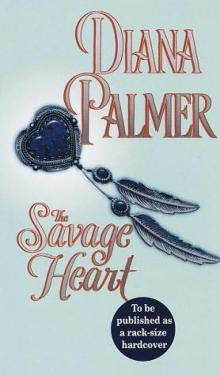 The Savage Heart
The Savage Heart